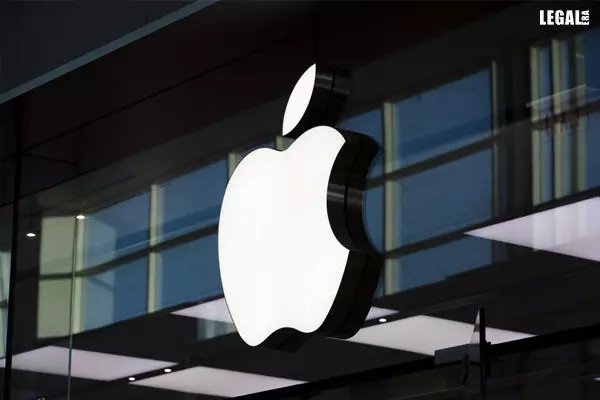- Home
- News
- Articles+
- Aerospace
- Artificial Intelligence
- Agriculture
- Alternate Dispute Resolution
- Arbitration & Mediation
- Banking and Finance
- Bankruptcy
- Book Review
- Bribery & Corruption
- Commercial Litigation
- Competition Law
- Conference Reports
- Consumer Products
- Contract
- Corporate Governance
- Corporate Law
- Covid-19
- Cryptocurrency
- Cybersecurity
- Data Protection
- Defence
- Digital Economy
- E-commerce
- Employment Law
- Energy and Natural Resources
- Entertainment and Sports Law
- Environmental Law
- Environmental, Social, and Governance
- Foreign Direct Investment
- Food and Beverage
- Gaming
- Health Care
- IBC Diaries
- In Focus
- Inclusion & Diversity
- Insurance Law
- Intellectual Property
- International Law
- IP & Tech Era
- Know the Law
- Labour Laws
- Law & Policy and Regulation
- Litigation
- Litigation Funding
- Manufacturing
- Mergers & Acquisitions
- NFTs
- Privacy
- Private Equity
- Project Finance
- Real Estate
- Risk and Compliance
- Student Corner
- Take On Board
- Tax
- Technology Media and Telecom
- Tributes
- Viewpoint
- Zoom In
- Law Firms
- In-House
- Rankings
- E-Magazine
- Legal Era TV
- Events
- Middle East
- Africa
- News
- Articles
- Aerospace
- Artificial Intelligence
- Agriculture
- Alternate Dispute Resolution
- Arbitration & Mediation
- Banking and Finance
- Bankruptcy
- Book Review
- Bribery & Corruption
- Commercial Litigation
- Competition Law
- Conference Reports
- Consumer Products
- Contract
- Corporate Governance
- Corporate Law
- Covid-19
- Cryptocurrency
- Cybersecurity
- Data Protection
- Defence
- Digital Economy
- E-commerce
- Employment Law
- Energy and Natural Resources
- Entertainment and Sports Law
- Environmental Law
- Environmental, Social, and Governance
- Foreign Direct Investment
- Food and Beverage
- Gaming
- Health Care
- IBC Diaries
- In Focus
- Inclusion & Diversity
- Insurance Law
- Intellectual Property
- International Law
- IP & Tech Era
- Know the Law
- Labour Laws
- Law & Policy and Regulation
- Litigation
- Litigation Funding
- Manufacturing
- Mergers & Acquisitions
- NFTs
- Privacy
- Private Equity
- Project Finance
- Real Estate
- Risk and Compliance
- Student Corner
- Take On Board
- Tax
- Technology Media and Telecom
- Tributes
- Viewpoint
- Zoom In
- Law Firms
- In-House
- Rankings
- E-Magazine
- Legal Era TV
- Events
- Middle East
- Africa
London Court of Appeals Dismissed Apple’s Appeal in 4G Patent Dispute with Optis

London Court of Appeals Dismissed Apple’s Appeal in 4G Patent Dispute with Optis
The London Court of Appeal dismissed the tech giant Apple’s appeal in a long-running dispute with a U.S. patent holder Optis Cellular Technology LLC.
The Court of Appeal upheld the ruling of the High Court, which said that Apple had infringed two telecommunications (4G) patents used in devices including iPhones and iPads owned by Texas-based Optis Cellular Technology.
Texas-based Optis Cellular Technology LLC sued Apple in 2019 over its use of patents which Optis contended to be essential to certain technological standards, such as 4G.
In 2022, London’s High Court ruled that two of Optis' 4G patents were so-called standard essential patents and that Apple had infringed them.
Apple appealed against that decision in May, arguing that the two patents in issue were not essential to 4G standards and that it had not infringed the patents.
However, its appeal was rejected by the Court of Appeal, with Judge Colin Birss ruling that the High Court was ‘right to reject (Apple's) argument for non-infringement’ and on the issue of the patents being essential. Apple had also challenged the validity of the patents, but the Court of Appeal rejected its arguments and affirmed the Lower Court’s findings.
The ruling marks as the latest setback for Apple in its legal battle with Optis, which has spanned six separate trials and several appellate hearings in Britain alone.
Optis sought damages from Apple for its past and future use of its patents, as well as an injunction to stop Apple from selling its devices in Britain unless it agrees to pay royalties.
In October 2022, the High Court ruled that Optis was entitled to an injunction against Apple before a Court has determined the fair, reasonable, and non-discriminatory (FRAND) terms of use. Therefore, Optis was empowered to potentially block Apple from selling its products in one of its biggest markets if they fail to reach a licensing agreement.
In 2023, Apple was granted permission to appeal against the October ruling.



